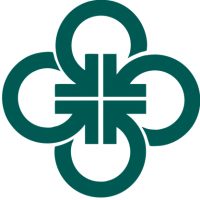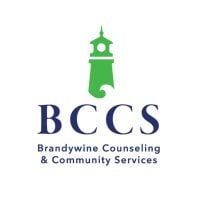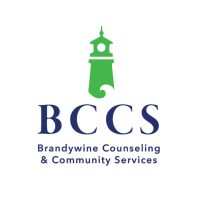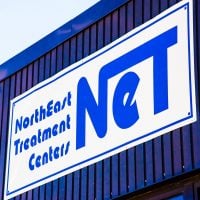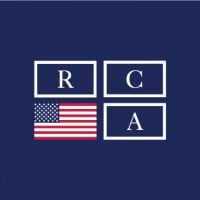Limen House for Men
Drug Rehab Center in Wilmington, Delaware
Limen House for Men in Wilmington, Delaware is an accredited addiction treatment center that provides medically supervised residential services and evidence-based practices, including individual and group counseling, to help men over 18 recover from addiction and develop personal and life skills.
About Limen House for Men in Delaware
Limen House for Men in Wilmington, Delaware provides an addiction treatment center for men over 18 who are committed to the recovery process. This facility offers a peaceful, safe and supportive environment, where they provide medically supervised residential services. Its addiction treatment program is grounded on evidence-based practices, as well as individual and group counseling services. The program is designed to help clients move through the recovery process, while gaining insight, education and personal development.
Limen House helps individuals recover from addiction by incorporating evidence-based models such as motivational interviewing, cognitive behavioral therapy, 12 Steps, and relapse prevention. Their holistic approach includes both individual and group counseling, as well as educational resources, life-skills training, and mental health services. In addition, Limen House for Men is accredited by The Joint Commission, and all of its clinical staff holds appropriate licenses to practice in Delaware.
Genders
Ages
Modality
Additional
Conditions and Issues Treated
Opioid addiction has become a significant health problem in the United States. When a person’s life becomes unmanageable because of an opioid addiction, treatment can help them get sober. Treatment includes medical care and counseling.
“With so many people struggling with opioid addiction, we need more care and attention for those who want to quit. Opioid addicts often take opioids when they experience a painful injury – that’s how the cycle starts! When someone begins taking their medication differently than prescribed or takes an excessive amount of drugs, it means they’re hooked on drugs and in danger of overdosing.
The most successful way to beat this is through detoxing from these types treatments at Limen House for Men in . Most facilities start by using medical support during the process while providing counseling services; rehabilitation comes later on after treatment has been completed successfully.
A “dual diagnosis” is when the individual has two medical issues at the same time. The top co-occurring mental disorders with addiction are depression, anxiety, ADHD, bi-polar disorder. Addiction is also considered a mental illness that is not a choice but rather a medical condition. Addiction can be caused by any number of underlying issues.
Dual diagnosis is provided by Limen House for Men to treat addictive tendencies as well as any untreated mental illnesses. This ensures successful long term health and recovery for patients after treatment has been completed.
Dual diagnosis is provided by Limen House for Men to treat addictive tendencies as well as any untreated mental illnesses for people in Delaware. This ensures successful long term health and recovery for patients after treatment has been completed.Levels of Care Offered
This center offers a variety of custom treatment tailored to individual recovery. Currently available are Aftercare Support, Drug Rehab, Dual-Diagnosis, Inpatient, Residential, Sober-Living / Half-Way, with additional therapies available as listed below.
Going to an inpatient rehab facility means living there while all aspects of addiction or co-occurring disorder get addressed. The treatment involves medical supervision, therapy, and future planning.
This type of rehabilitation provides a drug-free environment for people who struggle with chronic/long-term addiction without having access to drugs outside the center (or their own home). It takes away any distractions because they live there 24 hours per day. If someone is trying to break out old habits, which could lead them back into substance abuse, things like jobs or school can be put on hold until after they complete their stay to focus solely on recovery.
Sober living homes (abbreviated SLHs or sometimes sober houses ) are temporary housing for recovering addicts, most often those in early or mid stage recovery, who typically live in the home for 3 to 6 months.
The typical SLH functions as a halfway house, providing a stable living environment for addicts in recovery.
While at an SLH, residents typically meet with various therapists on site and attend regular 12-step meetings as well as other recovery group meetings.
Residential treatment programs are those that offer housing and meals in addition to substance abuse treatment. Rehab facilities that offer residential treatment allow patients to focus solely on recovery, in an environment totally separate from their lives. Some rehab centers specialize in short-term residential treatment (a few days to a week or two), while others solely provide treatment on a long-term basis (several weeks to months). Some offer both, and tailor treatment to the patient’s individual requirements.
Without aftercare support, addicts can easily relapse back into addiction. It is crucial to integrate the addict back into society. Aftercare support should take place after outpatient treatment has ended.
There are a few different types of aftercare support that patients can seek after completing an inpatient treatment program:
- 12 Step Self-help groups (AA, NA)
- Therapeutic communities,
- Long-term, structured sober living arrangements
- Halfway houses (residential treatment centers)
Many different support groups exist for addicts to seek help after treatment. Some are more effective than others, depending on the person’s addiction, background, and other factors.
Therapies & Programs
Individual therapy is a form of counseling where you meet with a trained professional one-on-one. Meeting with a therapist in this setting allows for a personal and trusting relationship to be built. This allows the patient to open up about sensitive or private issues they may not feel comfortable discussing in a group. Individual therapy helps identify the root causes of your addiction, which can help prevent relapse.
Family therapy is often done alongside drug treatment to help addicts stay sober. The goal of family therapy for drug addiction is to create an environment where communication can happen without judgment, hostility, or blame. The therapist will sit with the family so they can learn how to communicate differently and provide new tools for dealing with emotions so that people don’t want to drink or do drugs. It’s important for families to focus on relapse prevention plans during treatment so that if the addict feels like they want to use again, they’ll know what steps they need to take together to prevent it from happening again in the future.
Group therapy sessions are another common addiction recovery service. These group sessions typically involve six to 12 addicts who meet regularly with a trained professional for support and guidance.
During these sessions, the group shares their experiences with one another and provides feedback that can help each member avoid relapse or overcome specific obstacles they are facing in their recovery process. With this type of support and guidance, addicts can feel like they are part of a community that understands their struggles and will help them get through the hard times.
Many people struggling with drug addiction have experienced some form of trauma in their lives. It is crucial that these individuals seek out professional help; otherwise, their drug abuse and addiction will likely continue.
Therapists and counselors at drug treatment centers employ several treatment programs to help people struggling with drug addiction, including trauma therapy. Trauma therapy helps people dealing with addiction by allowing them to confront the traumas of their past and move past them.
It is important to note that trauma therapy should not be confused with PTSD (post-traumatic stress disorder). Rather, it is used to treat the effects of trauma, which are often at the root of addiction.
It’s not as simple as quitting drinking or using drugs and expecting the hard part to be over. Many addicts in recovery have discovered that they need to improve skills such as time management, organization, communication, socialization, and self-esteem. Learning certain life skills can help those who are struggling with addiction.
Payment Options Accepted
For specific insurance or payment methods please contact us.
Limen House Associated Centers
Discover treatment facilities under the same provider.
Learn More About Limen House Centers
Additional Details
Specifics, location, and helpful extra information.
Wilmington, Delaware 19801 Phone Number(302) 652-7969 Meta DetailsUpdated November 25, 2023
Staff Verified
Limen House for Men Patient Reviews
There are no reviews yet. Be the first one to write one.
Wilmington, Delaware Addiction Information
The Delaware substance abuse statistics show that the number of deaths due to drug injury is higher than the national average. Over 16% of all deaths in the state between 2008 and 2017 were caused by drugs and alcohol. The state has been rolling out more services to address addiction in an effort to get help to those who need it.
The drug addiction problem in Wilmington, Delaware, is significant. In 2013, Wilmington had a drug overdose death rate of 26.2 per 100,000 residents. In 2016 alone, more than 1,300 cases of heroin overdoses were reported in Wilmington, Delaware. The best way to find a drug treatment facility in Wilmington, Delaware, is to ask for referrals from friends or family members who have gone through a treatment program.
Treatment in Nearby Cities
- Milford, DE (58.1 mi.)
- Rehoboth Beach, DE (75.5 mi.)
- Laurel, DE (82.4 mi.)
- Millsboro, DE (81.2 mi.)
- Smyrna, DE (31.1 mi.)
Centers near Limen House for Men
The facility name, logo and brand are the property and registered trademarks of Limen House for Men, and are being used for identification and informational purposes only. Use of these names, logos and brands shall not imply endorsement. RehabNow.org is not affiliated with or sponsored by Limen House for Men.


